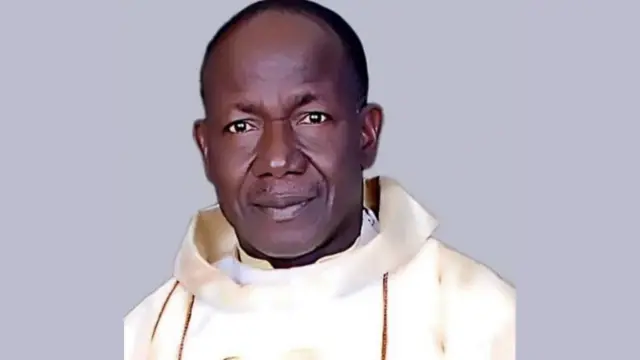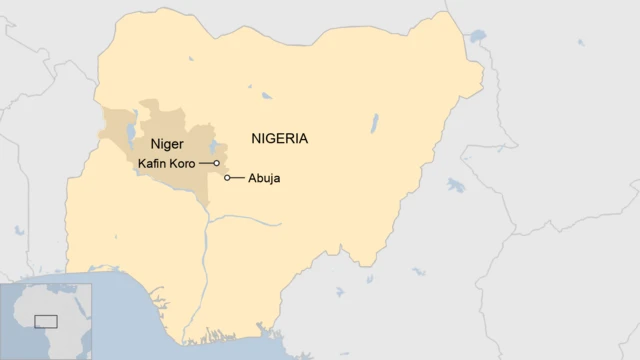Gunmen kill Nigeria Catholic priest, shoot anotherpublished at 04:38 GMT 16 January 2023
Cat Wiener
BBC World Service Newsroom
 Image source, Vatican News
Image source, Vatican NewsFather Isaac Achi was serving as the parish priest
A Roman Catholic priest has been killed by armed gunmen at his parish in northern Nigeria, who then burned his rectory, in the village of Kafin Koro, Niger state, to the ground.
The body of Father Isaac Achi was found in the charred ruins of the building.
Another priest, Father Collins Omeh, was shot as he tried to escape the blaze and was later taken to hospital.
He told local reporters that Father Achi was shot dead by the gunmen, who he said were shouting jihadi slogans.
In a separate incident, a gang in the north-western state of Katsina kidnapped at least five people as they prepared for a church service.
